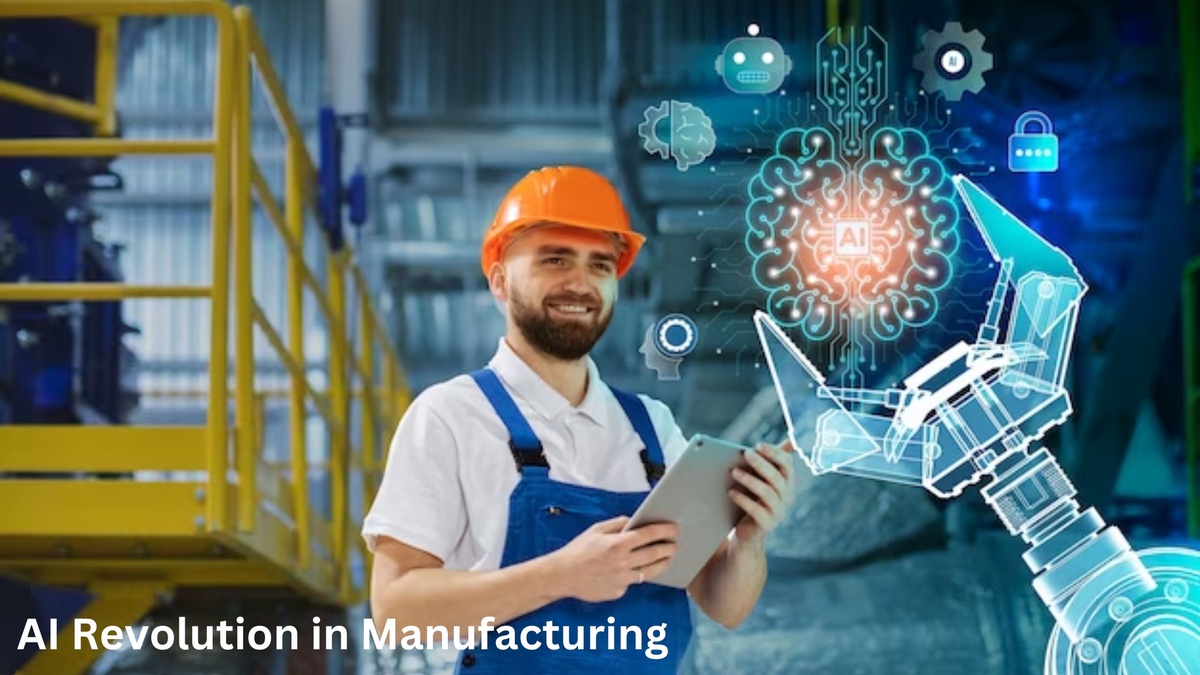In recent years, the integration of Artificial Intelligence (AI) in manufacturing processes has brought about a paradigm shift, revolutionizing the industry in ways previously unimaginable. The marriage of advanced technologies and machine learning algorithms is ushering in a new era of efficiency, productivity, and innovation within the manufacturing sector.
This blog explores the Impact Of Artificial Intelligence In Manufacturing, paving the way for a smarter, more connected, and sustainable future.
Predictive Maintenance:
One of the pivotal applications of AI in manufacturing is predictive maintenance. Traditional maintenance practices often rely on fixed schedules or reactive measures, leading to unplanned downtime and increased costs. AI algorithms, powered by machine learning, analyze real-time data from sensors and equipment to predict when a machine is likely to fail. This proactive approach allows manufacturers to perform maintenance tasks precisely when needed, reducing downtime and extending the lifespan of machinery.
Optimized Production Processes:
AI-driven systems can optimize production processes by continuously analyzing and adjusting parameters for maximum efficiency. Machine learning algorithms can adapt to fluctuations in demand, process variations, and environmental conditions, ensuring that manufacturing operations are finely tuned. This not only enhances overall productivity but also minimizes waste, energy consumption, and resource usage.
Quality Control and Inspection:
Ensuring product quality is a critical aspect of manufacturing. AI-powered vision systems and image recognition technologies have significantly improved quality control and inspection processes. These systems can detect defects, anomalies, or deviations from the desired specifications with remarkable accuracy. The result is a reduction in defective products, improved product quality, and increased customer satisfaction.
Supply Chain Optimization:
AI is revolutionizing supply chain management by providing real-time insights and predictive analytics. Manufacturers can leverage AI algorithms to optimize inventory levels, streamline logistics, and make data-driven decisions. This leads to a more responsive and agile supply chain, reducing lead times and improving overall operational efficiency.
Human-Robot Collaboration:
Collaborative robots, or cobots, powered by AI, are increasingly being integrated into manufacturing processes. These robots can work alongside human workers, taking on repetitive or dangerous tasks. AI algorithms enable these robots to learn and adapt to their environment, making them more flexible and efficient in handling various manufacturing tasks.
Customization and Personalization:
AI is enabling a shift from mass production to more personalized and customized manufacturing. By analyzing customer data and preferences, manufacturers can tailor products to individual needs on a larger scale. This not only meets customer demands more effectively but also contributes to reducing waste associated with overproduction.
Energy Efficiency and Sustainability:
Manufacturers are under increasing pressure to adopt sustainable practices. AI plays a crucial role in optimizing energy consumption and reducing environmental impact. Smart systems can monitor and control energy usage, identify opportunities for efficiency improvements, and contribute to the overall sustainability goals of manufacturing facilities.
Conclusion
As we navigate the ever-evolving landscape of manufacturing, the transformative power of Artificial Intelligence emerges as a cornerstone for the industry's future. The integration of AI not only enhances efficiency, productivity, and quality in manufacturing but also sets the stage for a more adaptive and sustainable sector.
In this era of technological innovation, the need for skilled professionals to harness the potential of AI becomes paramount. It is crucial for manufacturing enterprises to stay ahead of the curve by leveraging the expertise of professionals who can seamlessly integrate AI technologies into their operations. This brings us to the significance of hiring full stack developers with a comprehensive understanding of both front-end and back-end technologies.
Considering to hire full stack developers equips manufacturing companies with the versatility needed to navigate the complexities of AI implementation. These developers possess a holistic skill set, encompassing the knowledge of AI algorithms, data processing, and user interface design. Their ability to bridge the gap between different layers of the technological stack positions them as invaluable assets in steering manufacturing processes towards a more intelligent and connected future.


No comments yet